Considering that women comprise the majority of college students these days, it’s easy to take currently available educational opportunities for granted. The drive and courage of females from previous generations — ones where simply being born with two X chromosomes meant a lifetime of treatment as a second-class citizen — made it all possible for today’s students, researchers and professors to indulge their passions, imaginations and intellects. While few will deny that some majors, career paths and organizations still tip their favor towards the masculine, a debt of gratitude is still owed these incredible pioneers. More than the following 11 contributed to the rise of women in higher education, of course, and all should be considered heroines for breaking so much ground.
-
Elena Cornaro Piscopia
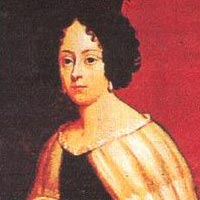 Most historians agree this philosopher, hailing from the Venetian elite, holds the honors of being the very first woman to receive a university degree. In June of 1678, she earned her doctorate of philosophy, Doctor’s Ring, Teacher’s Ermine Cape and Poet’s Laurel Crown to a surprising amount of fanfare — even attaining membership in several European (not just Italian!) academic circles. Some believe Piscopia may have even held a mathematics lecturer position at her own alma mater. Despite such lofty achievements, though, she renounced her nobility and entered the sisterhood as a Benedictine nun, dedicating the rest of her short life to service.
Most historians agree this philosopher, hailing from the Venetian elite, holds the honors of being the very first woman to receive a university degree. In June of 1678, she earned her doctorate of philosophy, Doctor’s Ring, Teacher’s Ermine Cape and Poet’s Laurel Crown to a surprising amount of fanfare — even attaining membership in several European (not just Italian!) academic circles. Some believe Piscopia may have even held a mathematics lecturer position at her own alma mater. Despite such lofty achievements, though, she renounced her nobility and entered the sisterhood as a Benedictine nun, dedicating the rest of her short life to service. -
Sarah Jane Woodson Early
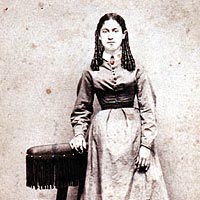 Sarah Jane Woodson Early shattered an important educational glass ceiling when she became the first African-American woman to serve as a professor. Xenia, Ohio’s Wilberforce University hired her to teach Latin and English in 1866, and she also held the Lady Principal and Matron position. Brother Rev. Lewis Woodson, who founded and sponsored the university, played an integral role in helping her break through both gender and racial barriers. Beyond this achievement, Early played an integral role in promoting education amongst African-American youth — particularly females — and even worked as a principal (and teacher) in four different schools.
Sarah Jane Woodson Early shattered an important educational glass ceiling when she became the first African-American woman to serve as a professor. Xenia, Ohio’s Wilberforce University hired her to teach Latin and English in 1866, and she also held the Lady Principal and Matron position. Brother Rev. Lewis Woodson, who founded and sponsored the university, played an integral role in helping her break through both gender and racial barriers. Beyond this achievement, Early played an integral role in promoting education amongst African-American youth — particularly females — and even worked as a principal (and teacher) in four different schools. -
Lorene L. Rogers
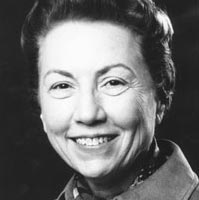 In 1975, Lorene L. Rogers became the first woman named president of a major research university. She originally hooked up with University of Texas as a student, earning a master’s and doctorate in chemistry at a time when women largely avoided the sciences. After graduating, Rogers took up a research scientist position at her own alma mater, gradually moving up the chain of command to serve as assistant dean, associate dean, vice president, president ad interim and — of course — president. To date, she remains UT’s only female president, but schools across the United States eventually followed suit.
In 1975, Lorene L. Rogers became the first woman named president of a major research university. She originally hooked up with University of Texas as a student, earning a master’s and doctorate in chemistry at a time when women largely avoided the sciences. After graduating, Rogers took up a research scientist position at her own alma mater, gradually moving up the chain of command to serve as assistant dean, associate dean, vice president, president ad interim and — of course — president. To date, she remains UT’s only female president, but schools across the United States eventually followed suit. -
Bettisia Gozzadini
p>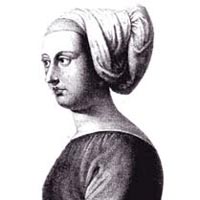 Although historical records from the Middle Ages are not always the most accurate — or even complete — popular consensus believes this Bolognese noble was probably the very first female professor and law student. After earning her JD equivalent in 1236, Bettisia Gozzadini worked as a teacher in her home before moving on to nearby schools. But it wasn’t long before University of Bologna, from which she originally graduated, stopped on by to offer her a professorship. Legend has it that she had to hold courses behind a screen lest she distract her male pupils. Hardly surprising, considering Gozzadini allegedly (probably) received her education while disguised as a man.
Although historical records from the Middle Ages are not always the most accurate — or even complete — popular consensus believes this Bolognese noble was probably the very first female professor and law student. After earning her JD equivalent in 1236, Bettisia Gozzadini worked as a teacher in her home before moving on to nearby schools. But it wasn’t long before University of Bologna, from which she originally graduated, stopped on by to offer her a professorship. Legend has it that she had to hold courses behind a screen lest she distract her male pupils. Hardly surprising, considering Gozzadini allegedly (probably) received her education while disguised as a man. -
Marie Curie
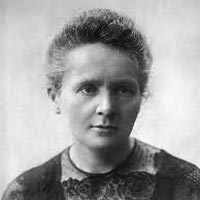 One of the most famous women in science, Marie Curie also earned the honor of being the first female ever awarded the prestigious Nobel Prize — and the first to ever win two! She shared the 1903 physics award with her husband Pierre Curie and Henri Becquerel, and flew solo in 1911 when she won for chemistry. Among other gender-related groundbreakers, this heavily influential scientist became the first woman professor at University of Paris and the first woman entombed in the Paris Pantheon on her own merits. Curie is most acclaimed for discovering the elements radium and polonium, creating the term "radioactivity," establishing theories about the phenomenon and organizing two Curie Institutes (one in Paris, another in Warsaw).
One of the most famous women in science, Marie Curie also earned the honor of being the first female ever awarded the prestigious Nobel Prize — and the first to ever win two! She shared the 1903 physics award with her husband Pierre Curie and Henri Becquerel, and flew solo in 1911 when she won for chemistry. Among other gender-related groundbreakers, this heavily influential scientist became the first woman professor at University of Paris and the first woman entombed in the Paris Pantheon on her own merits. Curie is most acclaimed for discovering the elements radium and polonium, creating the term "radioactivity," establishing theories about the phenomenon and organizing two Curie Institutes (one in Paris, another in Warsaw). -
Mary Jane Patterson
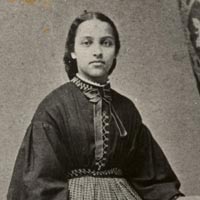 Mary Jane Patterson paved the way for African-American women when she became the very first to earn a college degree (BA) in 1862. Rather than the literary certificate program Oberlin College offered to women at the time, she opted instead for the classics route once exclusive to men. An avid philanthropist, Patterson devoted the rest of her life to furthering education in the oft-marginalized African-American community, serving as a teacher, assistant principal and principal of Washington, D.C.’s Preparatory High School for Colored Youth (Dunbar High School). In addition, she also actively assisted the elderly and infirm and campaigned for improvements to African-American women’s rights.
Mary Jane Patterson paved the way for African-American women when she became the very first to earn a college degree (BA) in 1862. Rather than the literary certificate program Oberlin College offered to women at the time, she opted instead for the classics route once exclusive to men. An avid philanthropist, Patterson devoted the rest of her life to furthering education in the oft-marginalized African-American community, serving as a teacher, assistant principal and principal of Washington, D.C.’s Preparatory High School for Colored Youth (Dunbar High School). In addition, she also actively assisted the elderly and infirm and campaigned for improvements to African-American women’s rights. -
Elizabeth Blackwell
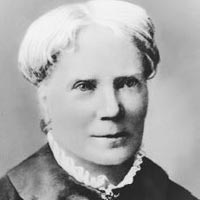 Women doctors have this extraordinary pioneer to thank for their education and careers. At a time when the ladyfolk were relegated to nursing jobs, Elizabeth Blackwell challenged the entire healthcare industry when she graduated from Geneva Medical College in 1849 — the very first known woman to receive a medical degree. More glass ceilings splintered once she began practicing medicine in the United States as the first female physician and ended up the first woman on the UK Medical Register as well. Blackwell spent the Civil War training Union nurses, eventually establishing her own eponymous medical college for women in 1868. A London-based institution (Women’s Medical College), established in 1869 alongside Florence Nightingale, followed another stint educating other women hoping for healthcare positions.
Women doctors have this extraordinary pioneer to thank for their education and careers. At a time when the ladyfolk were relegated to nursing jobs, Elizabeth Blackwell challenged the entire healthcare industry when she graduated from Geneva Medical College in 1849 — the very first known woman to receive a medical degree. More glass ceilings splintered once she began practicing medicine in the United States as the first female physician and ended up the first woman on the UK Medical Register as well. Blackwell spent the Civil War training Union nurses, eventually establishing her own eponymous medical college for women in 1868. A London-based institution (Women’s Medical College), established in 1869 alongside Florence Nightingale, followed another stint educating other women hoping for healthcare positions. -
Lillian Lincoln Lambert
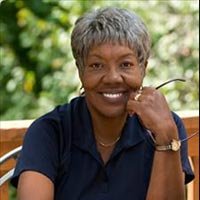 A veritable Renaissance woman, Lillian Lincoln Lambert earns multiple accolades as an entrepreneur (most notably as the founder of building services provider Centennial One), author and popular public speaker, but her legacy extends well beyond that. In 1969, she earned the distinction of being the first African-American female to graduate from Harvard Business School with an MBA. Along with four other students (Theodore Lewis, George Robert Price, A. Leroy Willis and Clifford E. Darden), Lambert established the HBS African-American Student Union with the hopes of providing scholarships, improved federal aid and career training and opportunities for participants.
A veritable Renaissance woman, Lillian Lincoln Lambert earns multiple accolades as an entrepreneur (most notably as the founder of building services provider Centennial One), author and popular public speaker, but her legacy extends well beyond that. In 1969, she earned the distinction of being the first African-American female to graduate from Harvard Business School with an MBA. Along with four other students (Theodore Lewis, George Robert Price, A. Leroy Willis and Clifford E. Darden), Lambert established the HBS African-American Student Union with the hopes of providing scholarships, improved federal aid and career training and opportunities for participants. -
Benigna, Countess von Zinzendorf
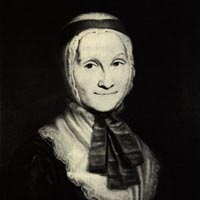 At only 16 years of age, Benigna, Countess von Zinzendorf established the first all-girls boarding school in America, sponsored by her father Count Nicholas von Zinzendorf. Originally known as the Bethlehem Female Seminary upon its 1742 founding, it changed its name to Moravian Seminary and College for Women by 1913. 1863 proved the Germantown, Pennsylvania-based school’s most landmark year, however, when the state finally recognized it as a college and granted it permission to reward bachelor’s degrees. As a result, most tend to accept Moravian as the oldest — though not continuously operational because of its current co-ed status — specifically female institute of higher learning in the United States.
At only 16 years of age, Benigna, Countess von Zinzendorf established the first all-girls boarding school in America, sponsored by her father Count Nicholas von Zinzendorf. Originally known as the Bethlehem Female Seminary upon its 1742 founding, it changed its name to Moravian Seminary and College for Women by 1913. 1863 proved the Germantown, Pennsylvania-based school’s most landmark year, however, when the state finally recognized it as a college and granted it permission to reward bachelor’s degrees. As a result, most tend to accept Moravian as the oldest — though not continuously operational because of its current co-ed status — specifically female institute of higher learning in the United States. -
Mary Lyon
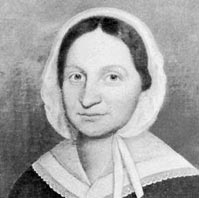 Today, the prestigious Seven Sisters are considered the women’s college equivalent of the Ivy League. And they all began thanks to the efforts of Mary Lyon, who founded the very first — Mount Holyoke Female Seminary (now Mount Holyoke College) — in 1837. Nestled in South Hadley, Massachusetts, the school’s overarching goals revolved around bringing excellent educational opportunities to a wide range of socioeconomic brackets, including the poor. Lyon herself acted as Mount Holyoke’s principal/president for over a decade and even implemented an early version of contemporary work study programs.
Today, the prestigious Seven Sisters are considered the women’s college equivalent of the Ivy League. And they all began thanks to the efforts of Mary Lyon, who founded the very first — Mount Holyoke Female Seminary (now Mount Holyoke College) — in 1837. Nestled in South Hadley, Massachusetts, the school’s overarching goals revolved around bringing excellent educational opportunities to a wide range of socioeconomic brackets, including the poor. Lyon herself acted as Mount Holyoke’s principal/president for over a decade and even implemented an early version of contemporary work study programs. -
Maria Mitchell
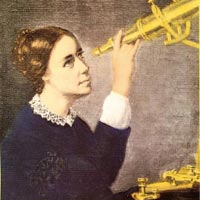 The majority of academics and historians consider Maria Mitchell America’s very first woman to work as a professional astronomer, but she certainly accomplished much more than that in her lifetime. Not only did she discover Comet 1847 VI (C/1847 T1, or "Miss Mitchell’s Comet"), both the American Academy of Arts and Sciences and the American Association for the Advancement of Science counted her as their flagship female member. Vassar College appointed her its first faculty member — no matter the gender! — and quickly named her the president of their shiny new observatory.
The majority of academics and historians consider Maria Mitchell America’s very first woman to work as a professional astronomer, but she certainly accomplished much more than that in her lifetime. Not only did she discover Comet 1847 VI (C/1847 T1, or "Miss Mitchell’s Comet"), both the American Academy of Arts and Sciences and the American Association for the Advancement of Science counted her as their flagship female member. Vassar College appointed her its first faculty member — no matter the gender! — and quickly named her the president of their shiny new observatory.
Taken From Online Colleges
No comments:
Post a Comment